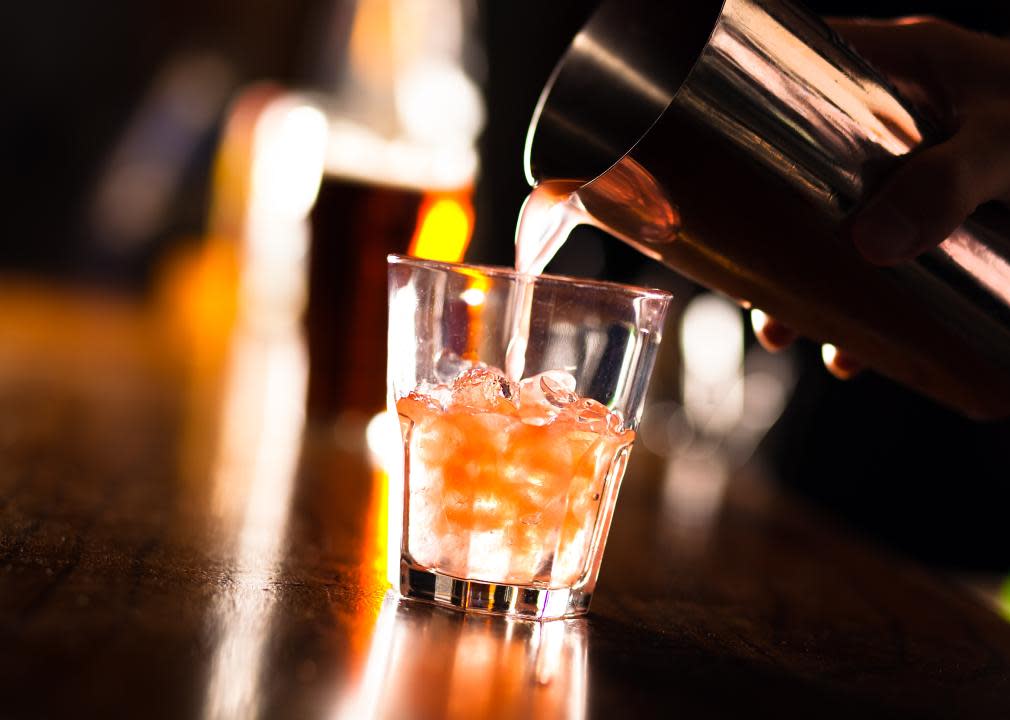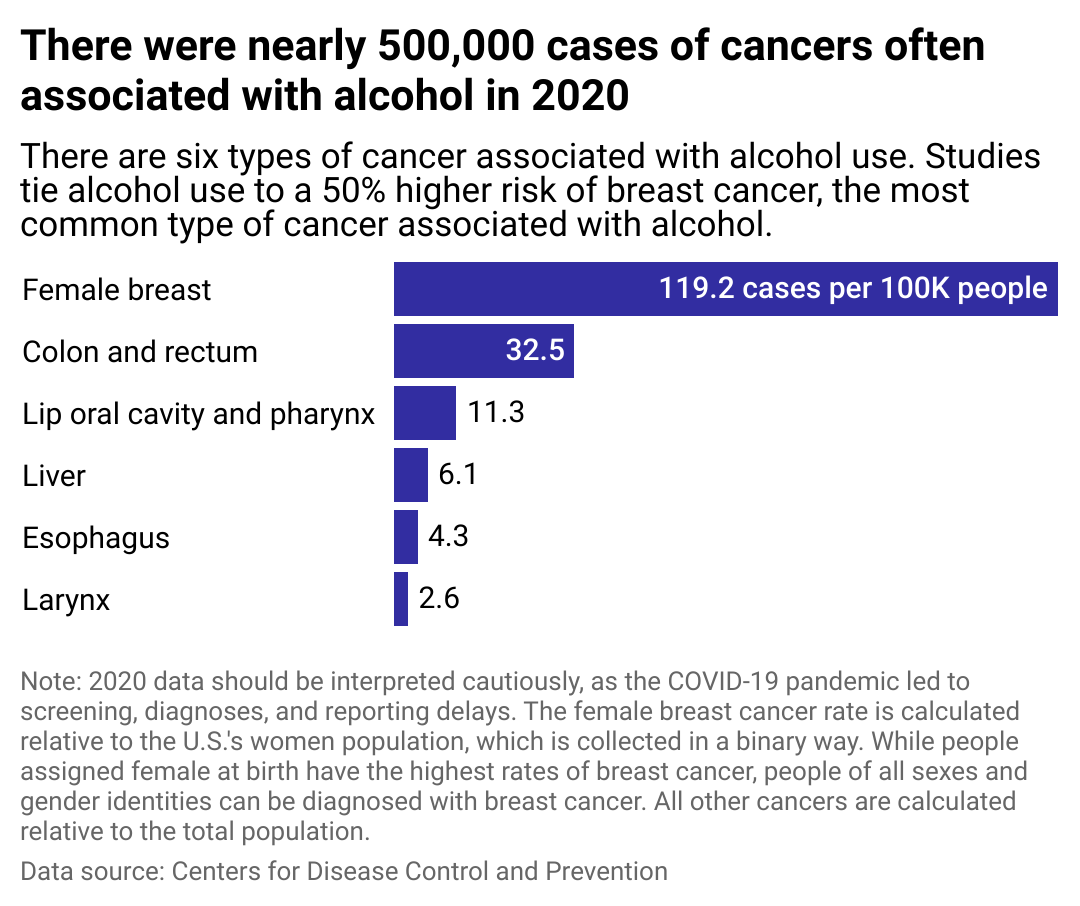Cancer diagnoses could reach record high in 2024. Here's how alcohol increases risk.

Every day this year, almost 5,500 Americans, on average, will get the news that they have some form of cancer.
That's as the risk of dying from cancer has declined over the last three decades, a trend the American Cancer Society attributes to lower rates of cigarette smoking, early detection, and advancements in cancer treatment.
But the organization is also warning that 2024 could be a record year for common cancer diagnoses in Americans—a third of which are known to be heavily influenced by alcohol habits.
To break down the rates of alcohol-associated cancers, Northwell Health partnered with Stacker to visualize the latest available data from the Centers for Disease Control and Prevention.
In 2020, there were over 450,000 new cancer cases associated with alcohol consumption, according to the CDC.
Health experts advise there is no safe amount of alcohol for humans to consume. Still, the more a person incorporates alcohol into their lifestyle, the more the risks of developing related cancers grow. As alcohol intake increases, so, too, does the risk of cancer. Studies have found that daily drinking can increase rates of breast cancer by 50% and colorectal cancer by 40%.
These unfortunate cancer diagnosis trends are emerging in a world still trying to get its footing after the COVID-19 pandemic, which drove an uptick in risky alcohol use, among other unhealthy habits. Overall, few Americans are aware of the consequences of regularly drinking alcoholic beverages.


The 6 cancers connected to alcohol use
Public service campaigns in the late 1900s were successful in educating many Americans about the potential for smoking cigarettes to cause cancer, but alcohol is also a carcinogenic substance.
Most Americans will use alcohol at some point in their lives. However, less than a third know that alcoholic beverages such as wine, beer, and liquors can raise the risk of developing cancer, according to a nationally representative survey of Americans published in 2023. One in 10 Americans surveyed believed consuming wine decreases the risk of cancer; however, the opposite is true of all forms of alcohol.
When alcohol enters the body, it's broken down into the chemical acetaldehyde. Acetaldehyde attacks DNA cells, which regulate cell growth, and cells can grow out of control, forming cancerous tumors, according to the CDC.
The American Cancer Society notes that the COVID-19 pandemic may have also contributed to delayed diagnoses, but the report notes that it will take many years to parse out those effects.
Story editing by Ashleigh Graf. Copy editing by Paris Close. Photo selection by Clarese Moller.
This story originally appeared on Northwell Health and was produced and distributed in partnership with Stacker Studio.




